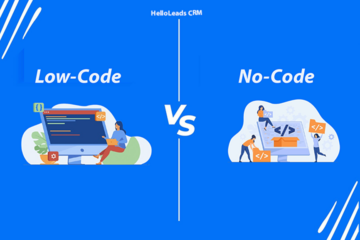
Have you ever been approached by a salesperson trying to sell you something you don’t need or want? It can be frustrating, right? As a business owner or marketer, you don’t want to make the same mistake with your own customers. But how can you make sure your sales and marketing efforts are truly customer-centric? The answer is empathy.
Empathy-based marketing is a strategy that focuses on understanding and addressing the needs, desires, and pain points of potential customers. By leveraging emotional intelligence and empathy to establish trust and nurture relationships, businesses can create a strong connection with their audience. By putting yourself in your customers’ shoes and considering their perspective, you can create customized messaging and offerings that meet their expectations and improve their experience.
In this post, we’ll explore how empathy can help you revolutionize your sales and marketing approach. From listening to customer feedback to creating personalized campaigns, we’ll provide tips on how to apply empathy in your business.
1 . Build Stronger Relationships:
Empathy is the foundation of strong relationships. When you show your prospects and customers that you understand their needs and concerns, you build trust and credibility. Selling with empathy involves prioritizing the needs of your customers and taking actions to support them. It’s about building long-term relationships and fostering trust, rather than just focusing on immediate sales.
2 . Understand your audience and listen actively:

To successfully connect with potential customers and drive sales and marketing outcomes, it’s crucial to understand your audience. This involves conducting thorough research to learn about their needs, challenges, and aspirations. Active listening is also essential in building strong connections with customers. By taking the time to listen carefully to their concerns and demonstrating genuine interest, you can build confidence and trust with your customers. By asking thoughtful questions that demonstrate your understanding of their situation, you can strengthen relationships, enhance customer satisfaction, and ultimately drive business success.
3 . Use storytelling:
Storytelling can be a powerful way to build empathy with your audience. Use real-life examples to showcase how your product or service has helped someone else overcome a challenge or improve their life. This can help your audience relate to your message and build trust with your brand.
4 . Stop pushing and start communicating:
An empathetic sales approach prioritizes building connections with potential customers. Rather than pushing a product or service, the focus is on having meaningful conversations that allow you to understand the customer’s needs and challenges. Displaying empathy towards their situation can establish a genuine connection and build trust. This approach recognizes that customers are individuals with unique needs, and by taking the time to understand those needs, you can tailor your messaging to better resonate with them. Ultimately, adopting an empathetic approach to sales can result in more successful outcomes, as customers are more likely to do business with someone they trust and feel truly understands their needs.
5 . Identify and address pain points:

Empathy-based marketing requires understanding your customers’ pain points and effectively communicating how your product or service can provide solutions to their problems. To do this effectively, it’s important to recognize that your customers may not always be fully aware of their pain points. By showing empathy and asking the right questions, you can help them identify and address their underlying needs. To get started with empathy-based marketing, consider conducting customer surveys, focus groups, or one-on-one interviews to gain a deeper understanding of your audience’s needs and pain points. Utilize this insight to craft tailored messages that directly address their concerns, showcasing how your product or service can effectively alleviate their issues.
Empathy is a vital component for any business to succeed. It can establish trust, create connections, and drive growth. It is more than just a buzzword, but a crucial element in making a positive difference in people’s lives. As a business owner or marketer, prioritizing empathy in your communication strategy can yield significant benefits. However, it’s not a one-time effort but an ongoing process that requires active listening, constant reflection, and a willingness to adapt. When empathy is given precedence in your business practices, you can establish a long-lasting legacy that brings about positive change for your customers, employees, and community. Therefore, start building those empathetic connections today and witness your business soar to new heights.
Share this blog :











